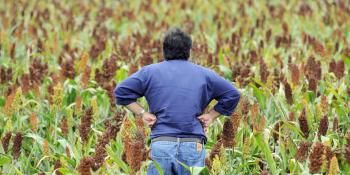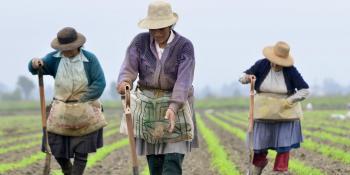Paper outlines framework to monitor and evaluate social learning approaches
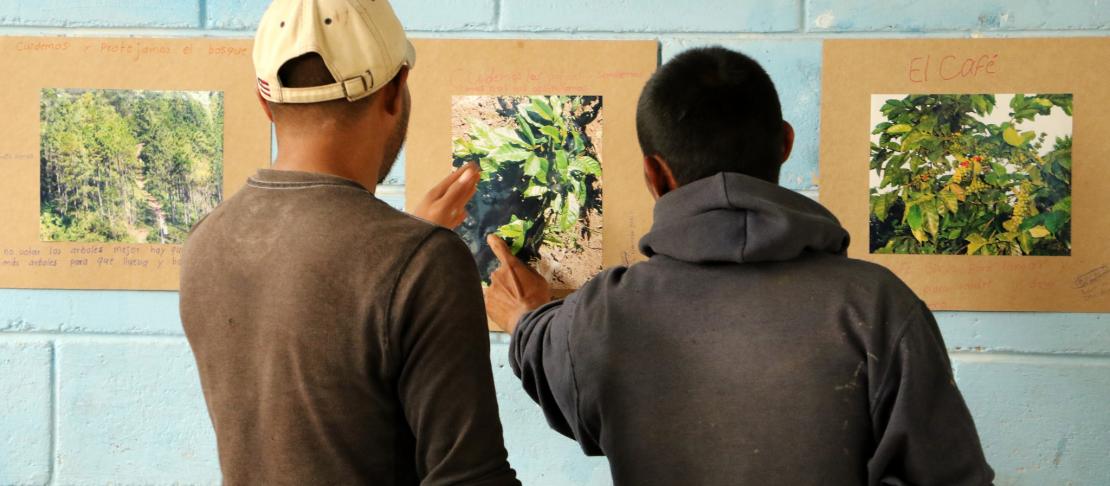
Framework on how to monitor and evaluate social learning approaches now available.
While social learning approaches are increasingly being used in development research, there is still a lack of robust evidence on the best methods for bringing about social learning, and in what contexts it contributes to achieving development targets.
To begin creating this evidence base, development researchers and practitioners 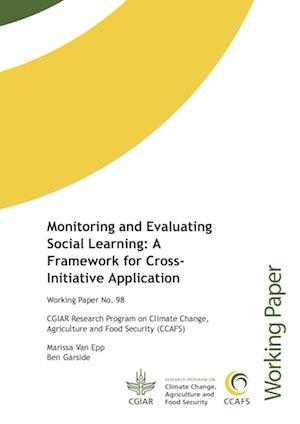 from across the globe came together in London last year for a workshop under the Climate Change and Social Learning Initiative (CCSL).
from across the globe came together in London last year for a workshop under the Climate Change and Social Learning Initiative (CCSL).
The CCSL initiative is a cross-organisation group with strong ties to CCAFS, IIED and the International Livestock Research Institute (ILRI), that does research on social learning’s usefulness, while making methodologies and approaches available to development initiatives.
The two-day workshop, organised by the International Institute for Environmental Development (IIED), brought together project initiatives that have incorporated social learning-oriented approaches, and monitoring and evaluation experts.
The aim was to bring together initiatives seeking to learn more about social learning and share their own work with others, but also to kick off work on a social learning monitoring and evaluation (M&E) framework. The group jointly identified which key elements of social learning to monitor.
Building off of the workshop discussions and input from key partners, the CCSL Initiative has now published a working paper presenting an M&E framework that will enable a systematic collection and analysis of data on social learning-oriented approaches across a range of projects and programs.
The paper, ‘Monitoring and Evaluating Social Learning: A Framework for Cross-Initiative Application’ (PDF), presents of a theory of change for social learning and 30 key indicators. The indicators are spread across four different monitoring areas:
- Engagement: outreach to and involvement of individuals and groups, ideally including women, youth and other marginalized groups. In the context of social learning, this allows the right stakeholders to form better relationships and a more nuanced understanding of the issue, enabling more effective co-learning.
- Iterative learning: collective or group learning that occurs continuously or cyclically. In the context of social learning, this ideally leads to looped learning. In looped learning, stakeholders question the assumptions, norms and values underlying their framing of an issue and approach to solving it.
- Capacity development: the development of stakeholders’ knowledge and skills. In the context of social learning, the aim is to enabling them to engage more effectively and in a more informed way in multi-directional, multi-party co-learning.
- Challenging institutions: active questioning of institutional practices and values, potentially leading to institutional change. In the context of social learning, stakeholders create an enabling environment for social learning by identifying institutional opportunities and barriers and working with key people to exploit/reduce these.
Because these areas are integral to most social learning-oriented approaches, they are the best places to look when assessing the context in which effective social learning occurs.
Projects that are trying to bring about social learning will likely need to focus on these areas as processes. Likewise, projects in which social learning is happening effectively should see positive outcomes in each of these areas. Intermediate outcomes in turn generate changes in value and practice across networks, institutions and systems that lead to better and more sustainable development outcomes.
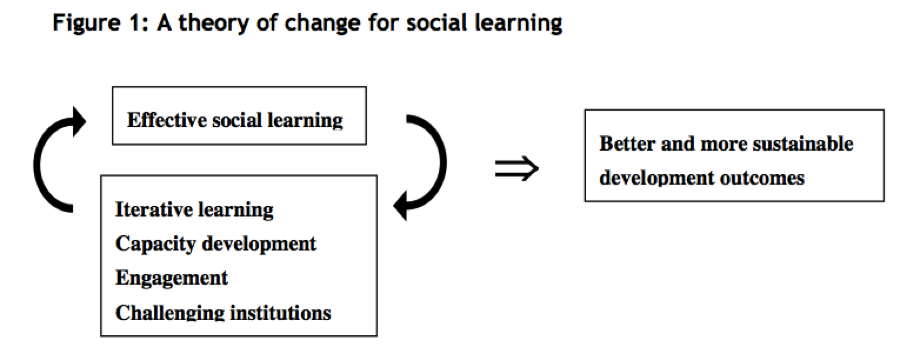
The framework consists of indicators that will help projects to monitor processes and outcomes in each area. For instance, a few indicators from the Engagement monitoring area:
Process indicator | Groups/individuals identified are engaged through appropriately tailored means |
Intermediate outcome indicator | Engagement has led towards a change in collective understanding of the problem and solutions |
Value/practice outcome indicator | Empowerment of most vulnerable beneficiaries (communities) including women and children |
The process indicator helps CCSL to collect information on methods of engagement, while the intermediate outcome indicator will aid in understanding whether those modes of engagement lead to social learning. The value/practice outcome indicator can be used to begin to track how social learning impacts development outcomes.
Contextualising social learning
Information collected through the framework will allow two things. First, it will support a better understanding of what combinations of context and activities are most conducive to effective social learning.
Further down the road, it will help us to understand when and where social learning contributes to better and more sustainable development outcomes. Social learning is not always the most appropriate approach; our analysis should reveal in what situations initiatives and beneficiaries stand to benefit most from social learning-oriented approaches.
This year, five partner initiatives committed to using a social learning-oriented approach will pilot the framework and receive one-to-one peer support from the CCSL Initiative. A separate guide to implementation and templates for data collection to accompany the framework is also in the works.
Others who are interested in integrating the framework into their monitoring and evaluation systems can join the CCSL Sandbox, where the CCSL Toolkit and other resources are available on a wiki page and peer support is given through the social network Yammer.
Download: Van Epp M, Garside B. 2014. Monitoring and Evaluating Social Learning: A Framework for Cross-Initiative Application. CCAFS Working Paper no. 98. Copenhagen, Denmark.
Learn more:
- Which factors are key for successful social learning?
- All lights on real-life social learning case studies
Marissa Van Epp works as an M&E consultant for the International Institute for Environment and Development (IIED). Story edited by Cecilia Schubert, CCAFS Flagship 4 Communications Officer.
Get in touch with Marissa Van Epp and Ben Garside if you use the M&E Framework, have comments and additions, or just want to learn more: Marissa Van Epp [msvanepp[at]gmail.com] Ben Garside [ben.garside[at]iied.org]
To learn more, or to join the CCSL initiative or Yammer group, get in touch with Cecilia Schubert [c.schubert[at]cgiar.org].

